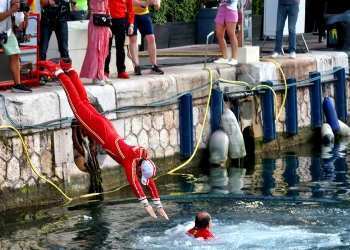Whilst Renault are confident they’re catching up with their rivals, Remi Taffin admits they’ll likely see further issues crop up in Malaysia where the engines will be truly tested.
Four Renault powered cars retired as a result of power unit troubles in Melbourne, whilst just one Mercedes power car failed to make the checkered flag.
Whilst Taffin is adamant they’ve made progress since then, he’s anticipating further issues, but insists they’ll react to them quickly.
“We had several issues across the cars in Melbourne but we have recreated the problems in the dyno at Viry,” he explained. “Most are fixed and the remaining will be under control by Friday in Sepang.
“While we anticipate further issues may occur we are much more able to react quickly to minimise their impact.”
Malaysia, often considered relatively easy on the engines, is now one of, if not the toughest on the new units according to Taffin thanks to the high heat, humidity and long straights.
“Sepang is one of the circuits whose technical requirements will change under the new regulations. In the V8 era the circuit sat towards the middle of the table for the challenge it posed for engines but now it will be one of the toughest races of the year.
“Of the six main components of the power unit, the internal combustion engine will be under the most pressure in Malaysia,” he added.
“The humidity in Sepang made it a little bit easier on normally aspirated engines since power comes down as the water content in the air increases. This means we were generally able to offset the impact of the two long straights. This year we won’t have this luxury. With a turbo engine the air intake is controlled at all times regardless of ambient conditions so those long straights will really start to hurt. As a result Sepang will become a lot less forgiving as twice a lap the PUs will be flat out, with the turbo revving at close to 100,000rpm for over 10 seconds.”






